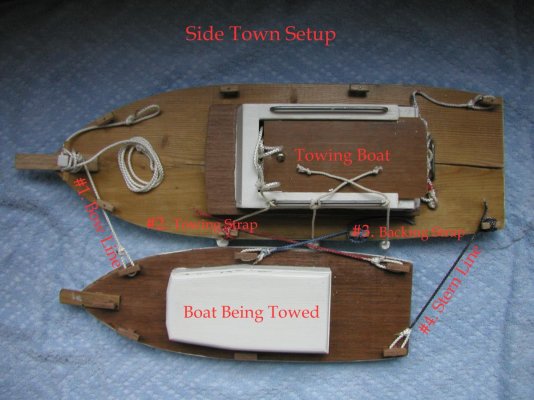It is not only moden ropes are contrary. Here is an excerpt from Three Men in a Boat a very funny book, written by Jerome K. Jerome in 1889, about three batchelors in an English canal boat.
There is something very strange and unaccountable about a tow-line. You roll it up with as much patience and care as you would take to fold up a new pair of trousers, and five minutes afterwards, when you pick it up, it is one ghastly, soul-revolting tangle.
I do not wish to be insulting, but I firmly believe that if you took an average tow-line, and stretched it out straight across the middle of a field, and then turned your back on it for thirty seconds, that, when you looked round again, you would find that it had got itself altogether in a heap in the middle of the field, and had twisted itself up, and tied itself into knots, and lost its two ends, and become all loops; and it would take you a good half-hour, sitting down there on the grass and swearing all the while, to disentangle it again.
That is my opinion of tow-lines in general. Of course, there may be honourable exceptions; I do not say that there are not. There may be tow-lines that are a credit to their profession — conscientious, respectable tow-lines — tow-lines that do not imagine they are crochet-work, and try to knit themselves up into antimacassars the instant they are left to themselves. I say there may be such tow-lines; I sincerely hope there are. But I have not met with them.
This tow-line I had taken in myself just before we had got to the lock. I would not let Harris touch it, because he is careless. I had looped it round slowly and cautiously, and tied it up in the middle, and folded it in two, and laid it down gently at the bottom of the boat. Harris had lifted it up scientifically, and had put it into George’s hand. George had taken it firmly, and held it away from him, and had begun to unravel it as if he were taking the swaddling clothes off a new-born infant; and, before he had unwound a dozen yards, the thing was more like a badly-made door-mat than anything else.
It is always the same, and the same sort of thing always goes on in connection with it. The man on the bank, who is trying to disentangle it, thinks all the fault lies with the man who rolled it up; and when a man up the river thinks a thing, he says it.
“What have you been trying to do with it, make a fishing-net of it? You’ve made a nice mess you have; why couldn’t you wind it up properly, you silly dummy?” he grunts from time to time as he struggles wildly with it, and lays it out flat on the tow-path, and runs round and round it, trying to find the end.
On the other hand, the man who wound it up thinks the whole cause of the muddle rests with the man who is trying to unwind it.
“It was all right when you took it!” he exclaims indignantly. “Why don’t you think what you are doing? You go about things in such a slap-dash style. You’d get a scaffolding pole entangled you would!”
And they feel so angry with one another that they would like to hang each other with the thing.
Ten minutes go by, and the first man gives a yell and goes mad, and dances on the rope, and tries to pull it straight by seizing hold of the first piece that comes to his hand and hauling at it. Of course, this only gets it into a tighter tangle than ever. Then the second man climbs out of the boat and comes to help him, and they get in each other’s way, and hinder one another. They both get hold of the same bit of line, and pull at it in opposite directions, and wonder where it is caught. In the end, they do get it clear, and then turn round and find that the boat has drifted off, and is making straight for the weir.

